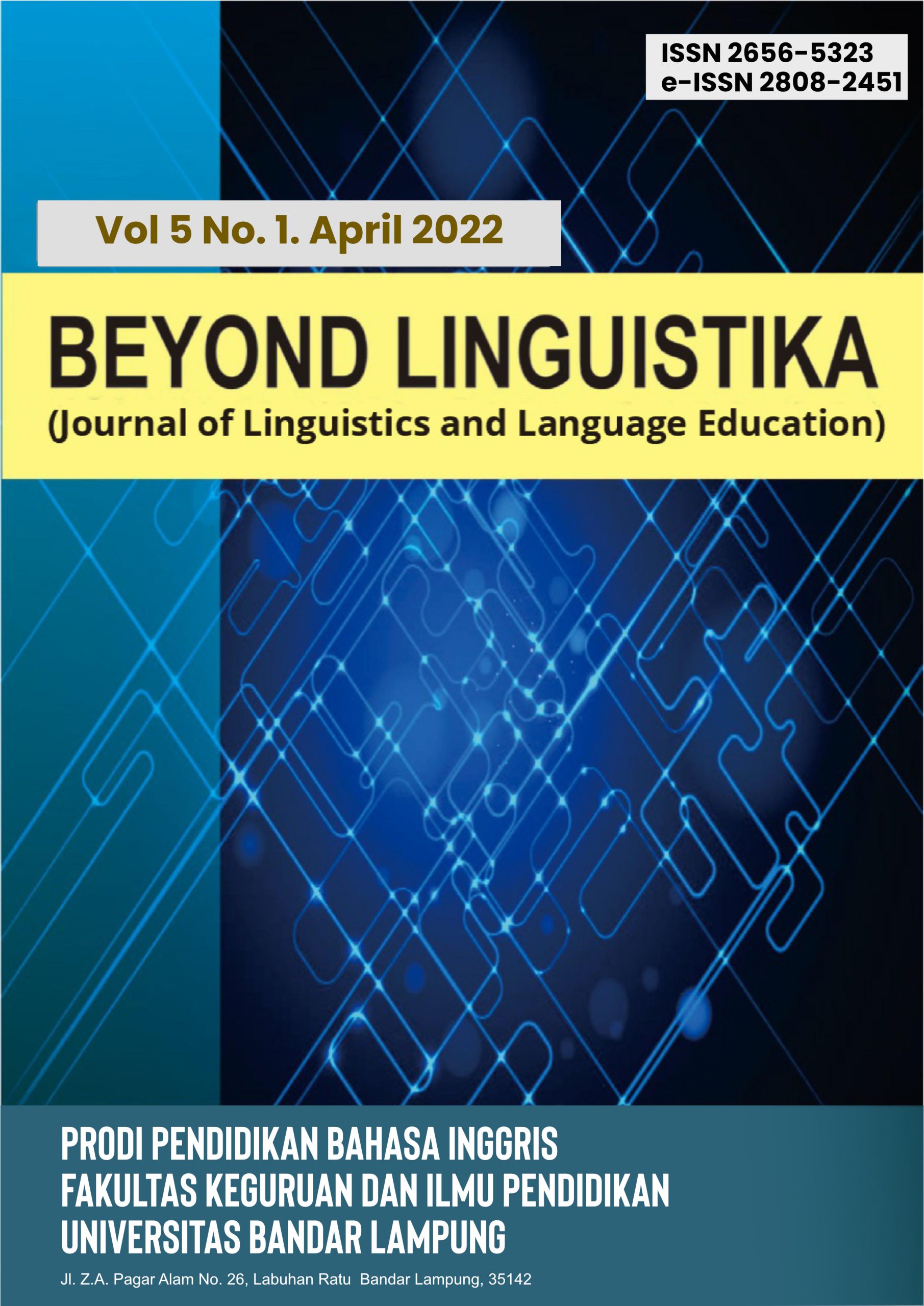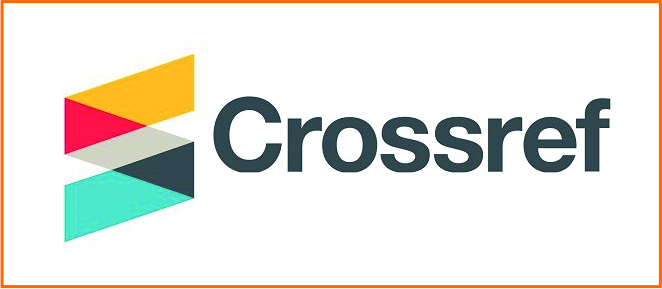THE EFFECT OF BOARD GAMES ON STUDENTS’ COMMUNICATIVE COMPETENCE
Abstract
Keywords
Full Text:
PDFReferences
REFERENCES
Anas Sudjono (2001) Pengantar
Evaluasi Pendidikan. Jakarta:
RajaGrafindo Persada.
Brewster, Jean, Gail Ellis and
Dennis Girard. (2002) The Primary
English Teacher’s Guide. Essex:
Pearson Education Limited.
Chang, Shelley and Jenny
Cogswell, 2008. Using Board
Games in The Language
Classroom. TESOL.
Chomsky, N. (1965) Aspects of the
theory of syntax, Cambridge: MIT
Press.
Ersoz, A. (2000). Six games for the
EFL/ESL classroom. The internet
TESL journal, Vol.VI, No. 6, June
http://www. iteslj.org.
Hendrawati, Elly (2018)
Penggunaan Media Permainan
Dalam Pembelajaran Matematika
Untuk Pengembangan Karakter
Siswa Di Smp Negeri 24 Surakarta
Kamonpan Boonkit. (2009)
Enhancing the development of
speaking skills for non-native
speakers of English.
Kusrini, E. (2012). Teaching
vocabulary for junior high school
students using snakes and ladders.
Journal Active, 19(4), 1-9.
Lee, H. (2012). SMARTies: Using a
board game in the English
classroom for edutainment and
assessment. Malaysian Journal of
ELT Research, 8(1), 1-35.
Lia, Amalia Nirmawati. (2015).
Improving Students’ Speaking
Skills Through Speaking Board
Games of Grade VIII of SMP N 13
Yogyakarta. Unpublished
Undergraduate Thesis.
Moursund, Dave. (2007)
Introduction to Using Games in
Education: A guide for Teachers
and Parents. Oregon: University of
Oregon.
Ohno, A. (2002) Communicative
competence and communicative
language teaching. Retrieved from
http://cicero.ubunkyo.ac.jp/lib/kiyo/
fsell2002/25-32.pdf
Prastyo (2017) Effects of
Cooperative Learning on Student
Teachers’ Communicative
Competence in Indonesia
Putri, Anggia Ananda. (2017). The
Implementation of Board Games in
Improving Students’ Speaking Skill
In The First Year Of Sma N 7
Bandar Lampung In Academic Year
/2017. Unpublished
Undergraduate Thesis.
Rahmawati, Ika Nur. (2012).
Improving the Fourth Grade
Students’ Speaking Skills Through
Board Games at SD
Muhammadiyah Pepe Bantul
Yogyakarta. Unpublished
Undergraduate Thesis.
Tsai, M-J. (2013) ‘Rethinking
communicative competence for
typical speakers: An integrated
approach to its nature and
assessment’, Pragmatics &
Cognition, 21(1), 158-177.
https://doi.org/10.1075/pc.21.1.07ts
a
Zhang, S. (2009). The Role of
Input, Interaction, and Output in the
Development of Oral Fluency.
English Language Teaching,
(4),91-100.
http://dx.doi.org/10.5539/elt.v2n4p9
DOI: http://dx.doi.org/10.36448/bl.v4i2.2279
Refbacks
- There are currently no refbacks.















